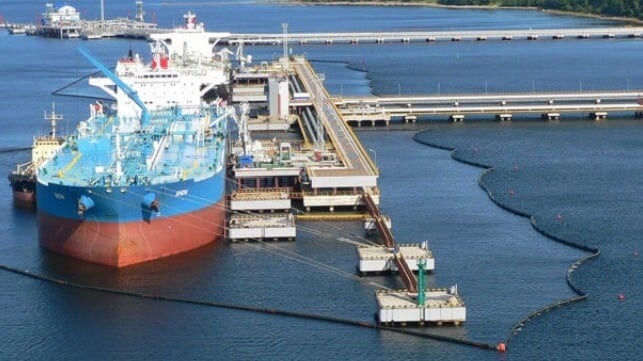Oil Prices Fall Despite G7 Cap on Russian Crude
Brent has fallen 11 percent since before the new restrictions on Russian oil, easing concerns over economic impact

The new G7 price cap on seaborne Russian oil exports has had little impact on pricing or supply, with Brent actually falling in the days after implementation - and for policymakers in the West, this could be a sign of success.
The $60 price cap is above current pricing for Urals, the benchmark grade of Russian crude, and effectively mirrors the market status quo. The cap does not interfere with the steady oil-sale funding stream supporting Russia's war in Ukraine - but that is a feature from the White House's perspective, not a bug, according to multiple observers. The low cap maintains Russia's financial incentive to continue to export oil, keeping global energy prices low and Western economies running.
"[The U.S. Treasury's] true motivation after March has been primarily to preserve Russian [oil] flows in the face of EU sanctions," one source familiar with the Biden administration's thinking told Reuters. "They believed if there was an oil price spike, not only will it hurt us economically and politically, but it'll damage Western support for Ukraine."
Western policymakers are well aware of the consequences of a Russian oil shutdown, or even the threat of one. In the weeks after the start of the invasion in February, traders rushed to find immediate alternatives to Russian oil, driving front-month delivery contracts north of $130 a barrel.
Russia's pledge to boycott the G7 price cap scheme could be the largest impact of the policy, according to market analysts. Even if the cap does not affect its earnings, Russia could still decide to penalize its NATO opponents by reducing production and crimping the global oil supply. If Russia shuts in as little as one-fifth of its capacity, oil prices could double, according to some analysts.

that matters most
Get the latest maritime news delivered to your inbox daily.
"We face a risk that Russia itself imposes an embargo on the West," warned Denmark's Jyske Bank in an advisory. "We model a Russian response of a production decline of 20 percent (two million tonnes per day) from Q1 to Q3 2023, which gives a Brent oil price of $180 in Q3 2023."
Under this scenario, Russia would actually earn more from oil sales than it does now, so long as it can circumvent the price cap using non-G7 insurance, tanker tonnage and customer base.
